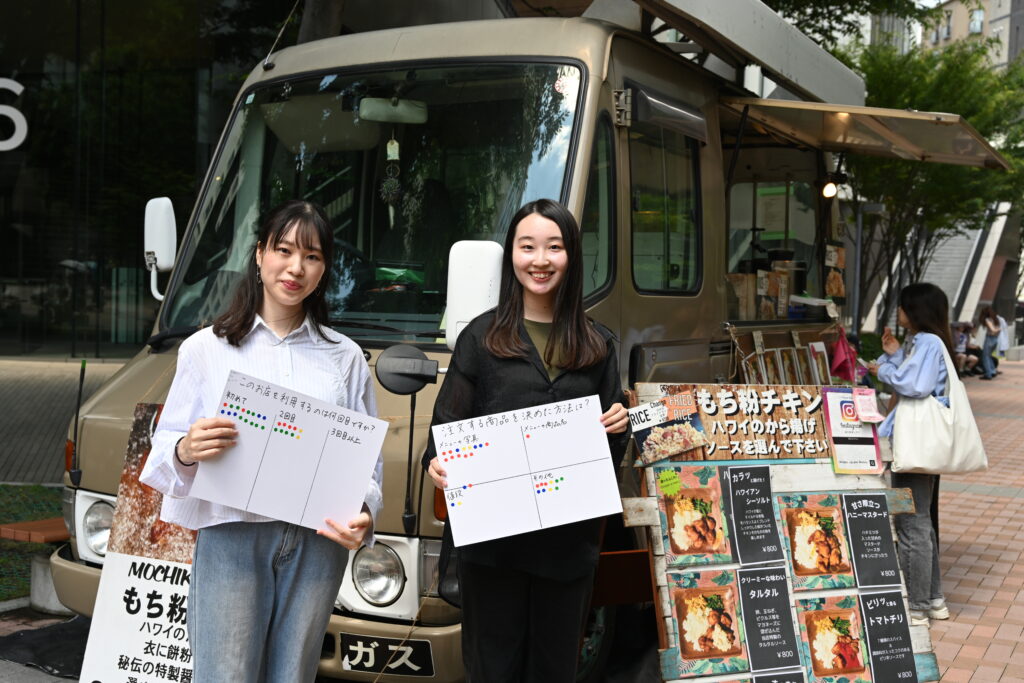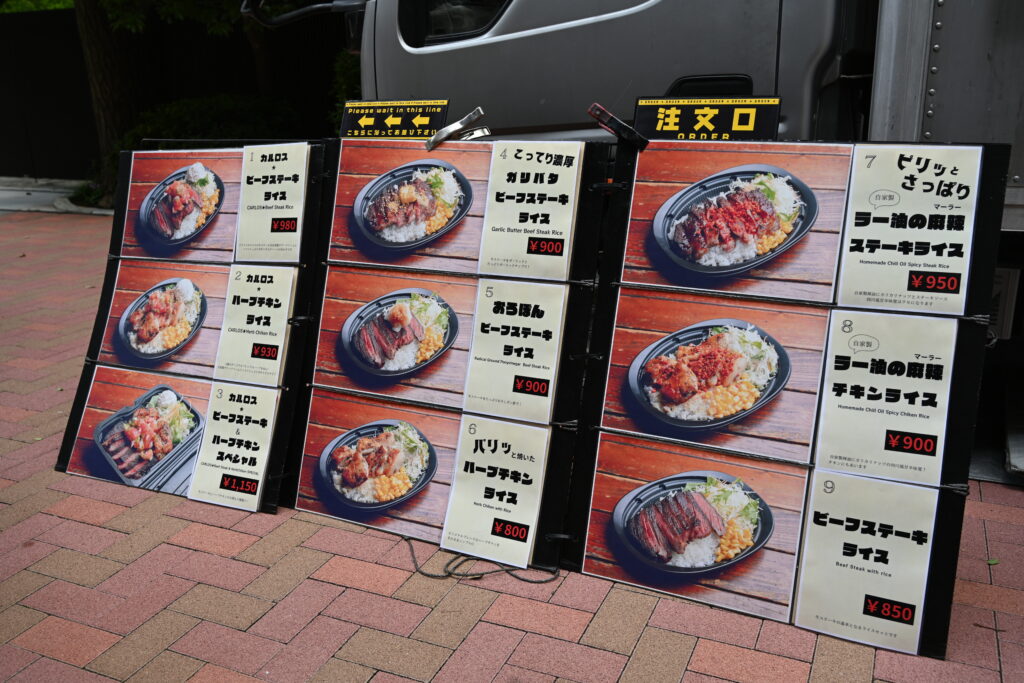Management students conduct empirical study on the impact of onomatopoeia on consumer purchasing behavior

Students from the Department of Management, under the guidance of Lecturer Genjiro Kosaka, conducted an empirical study as part of their graduation research to investigate the impact of onomatopoeia on consumer purchasing behavior.
Onomatopoeia refers to words that imitate physical sounds and words that describe states or feelings without actual sounds. This experiment was conducted with the cooperation of two food trucks operating at Sophia University’s Yotsuya Campus, and multiple experiments were carried out during lunchtime from May to June.
The project was organized by four senior students from the Department of Management: Honoka Kirigaya, Erika Yoshihara, Takumi Yasui, and Konami Tanaka. In Japan, many food companies use onomatopoeia in product names and packaging to differentiate their products and promote sales.
While there have been numerous prior studies on the relationship between onomatopoeia and consumer behavior, most of these studies have relied on surveys. The research team decided to conduct an empirical experiment using lunch menus sold by food trucks.

The experiment was conducted with the cooperation of a fried chicken bento shop and a steak bento shop.
Sales were compared between days when the usual menu without onomatopoeia was sold and days when modified menus with onomatopoeia created by the research team, such as “crispy fried,” “spicy aroma,” and “rich and thick,” were sold.
Additionally, interviews and surveys were conducted with students who lined up to purchase the meals to further investigate the relationship between onomatopoeia and purchasing behavior.
The results revealed that adding onomatopoeia to food menu names positively influences purchasing behavior, but the effect varies depending on the type of onomatopoeia used. Furthermore, the onomatopoeia effect is enhanced when the menu boards and other text information are uniform in font and design, and decisions are made based solely on textual information.
The research team presented these findings at a joint presentation held in July with Professor Hisanaga Amikura’s seminar from the Faculty of Economics and Professor Fumihiko Ikuine’s students from Chuo University Business School.
Reflecting on the experiment, Honoka said, “Compared to previous studies that mainly relied on surveys, our research was meaningful, having carried out a hands-on experiment with real food trucks. We also felt that the results might change if we conducted face-to-face experiments with time constraints on viewing the menu.”